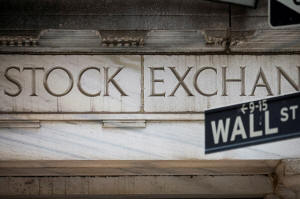Record-high US stocks grow more expensive versus global peers
 Send a link to a friend
Send a link to a friend
 [January 25, 2024] By
Lewis Krauskopf [January 25, 2024] By
Lewis Krauskopf
NEW YORK (Reuters) - The U.S. stock market's march to all-time highs is
putting the spotlight on its large valuation premium over global
equities, leading some investors to look abroad for outsize returns.
The S&P 500 topped most key regional indexes in 2023 with a 24% gain,
building on a decade of U.S. outperformance. The index is up over 2% so
far in 2024, outpacing many rivals after notching its first record high
in over two years last week.
Many investors are reluctant to reduce their U.S. exposure, pointing to
better economic and earnings prospects in 2024 for the country over
Europe and other regions. The S&P 500's heavy weighting in technology
companies also stands to draw investors who want to bet on new fields
like artificial intelligence.
But the valuation gap between the S&P 500 and MSCI's index of stocks in
over 40 other countries is near its widest in over 20 years, and some
investors are betting the opportunity abroad is too much of a bargain to
pass up.
International equity funds notched $73.6 billion in net inflows in 2023,
while U.S. equity funds had $52.1 billion in net outflows, EPFR data
showed, although both flows represent roughly 1% or less of overall
assets for each category.
"I don't think you can justify that record-wide gap between the U.S. and
the rest of the world, and as that closes, that is going to benefit
international markets," said Jeff Kleintop, chief global investment
strategist at Charles Schwab.
"Most people are probably underweight where their long-term allocation
to international (stocks) should be, and now is the time to consider
upping that."

The S&P 500 is trading at nearly 20 times forward earnings estimates,
well above its long-term average of 15.6. By contrast, MSCI's
all-country world index that excludes the U.S. is trading at 12.8 times
below its historic average of 13.5. That gap is close to its widest in
over two decades.
Plenty of investors are happy to pay that premium for U.S. stocks. U.S.
gross domestic product is expected to rise by 1.6% in 2024, against 0.7%
for the Euro area and 0.9% for Japan, according to World Bank forecasts.
China's stock market, meanwhile, tumbled over 10% in 2023 and has
extended its slide this year, with a deepening property crisis and local
government debt crunch among the factors spooking investors.
S&P 500 companies are expected to increase earnings by 10.6% in 2024,
nearly twice the pace of Europe's STOXX 600, according to LSEG
Datastream.
[to top of second column] |

The Wall Street entrance to the New York Stock Exchange (NYSE) is
seen in New York City, U.S., November 15, 2022. REUTERS/Brendan
McDermid/File Photo

The question is, however, whether those U.S. advantages are already
more-than-reflected in stock prices.
Vanguard's economic models, which take valuation into account,
projects U.S. equity returns over the next decade at an average
annual rate of 4.2% to 6.2%. Ten-year projections are rosier
elsewhere: 7% to 9% annualized return for non-U.S. developed
markets, and 6.6% to 8.6% for emerging markets. "In the case of the
U.S., we see that market is expensive," said Roger Aliaga-Diaz, head
of portfolio construction at Vanguard. "That predicts a much lower
return environment for U.S. equities than for ex-U.S."
Japan's stock market is also rallying, with the Nikkei already up 8%
this year at 34-year highs.
LPL Financial recommends investors "overweight" Japanese equities in
portfolios, noting still-cheap valuations despite recent gains,
improving technical factors and companies' improved focus on
shareholder returns.
But the firm is "underweight" Europe, having downgraded
international developed markets overall in October to "neutral,"
while upgrading the U.S. to "overweight."
While valuations in international developed markets are attractive,
"they have been attractive for a long time," said Jeffrey Buchbinder,
chief equity strategist for LPL Financial. "We want more than just
cheap valuations to get more interested in international."
Investors have been rewarded for sticking with the U.S. in recent
years. The S&P 500 is up 160% over the past decade, versus 130% for
the Nikkei, 40% for the STOXX and about 10% for the MSCI all-country
index that excludes the U.S.
Hans Olsen, chief investment officer for Fiduciary Trust Company,
said U.S. stock valuations are more reasonable when removing the
impact of heavily weighted tech and growth shares that are more
expensive.
At the same time, he is confident that a strong U.S. economy will
translate into solid corporate profits, helping U.S. stocks
outperform international markets this year. "If you have an economy
that is actually a bit stronger than people are giving it credit for
... that should flow through to the earnings," Olsen said.
(Reporting by Lewis Krauskopf; Editing by Ira Iosebashvili and
Richard Chang)
[© 2024 Thomson Reuters. All rights
reserved.]
This material may not be published,
broadcast, rewritten or redistributed.
Thompson Reuters is solely responsible for this content.
 |